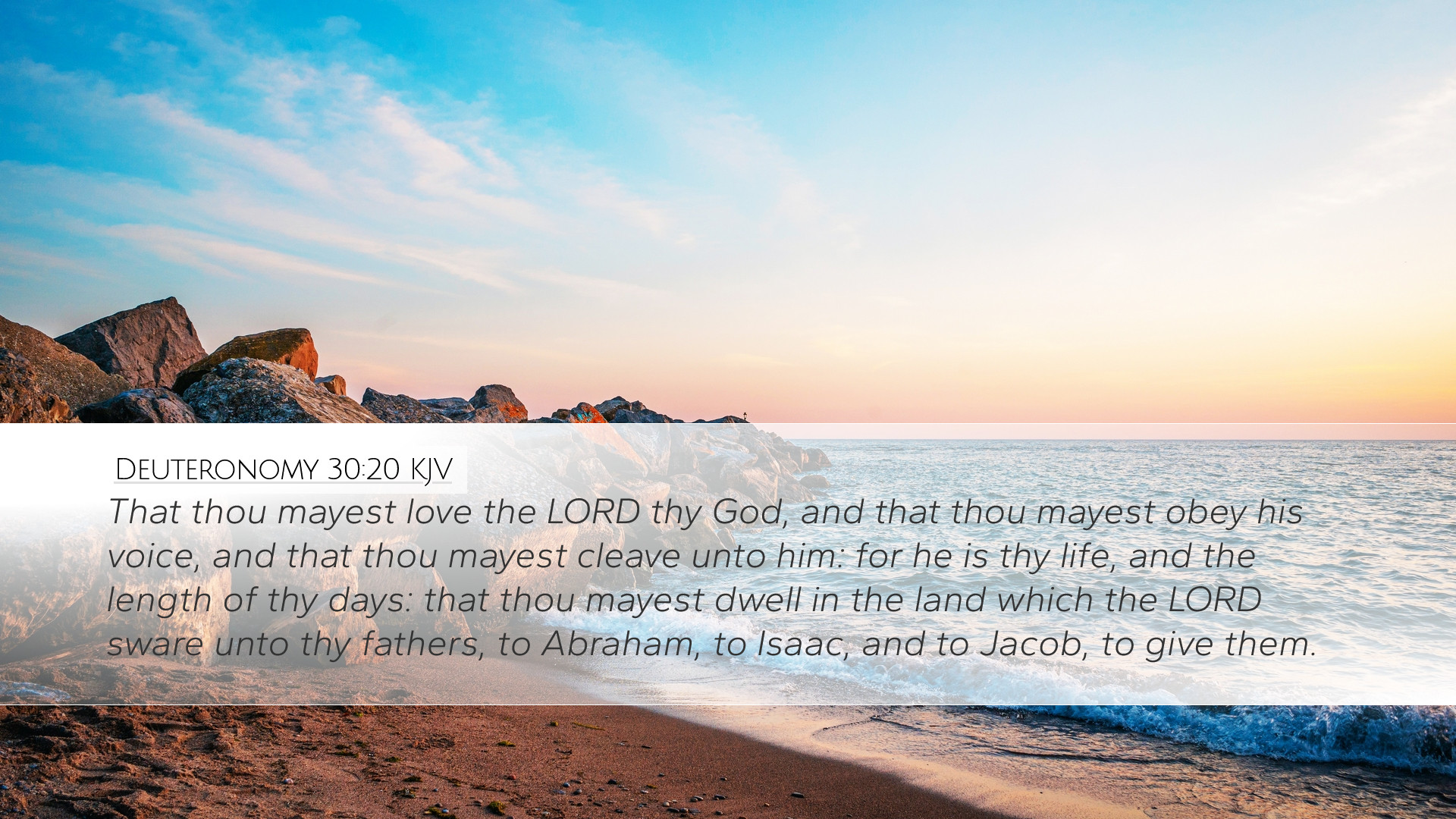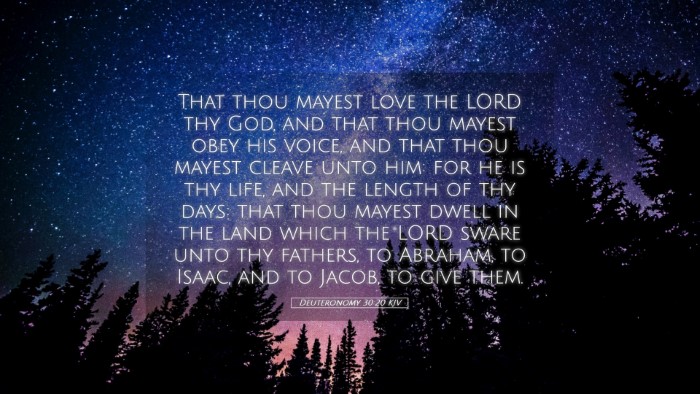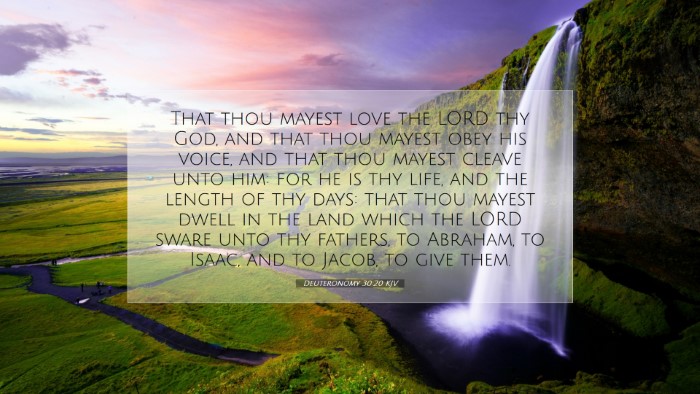Commentary on Deuteronomy 30:20
Bible Verse: "That you may love the LORD your God, that you may obey His voice, and that you may cling to Him, for He is your life and the length of your days; and that you may dwell in the land which the LORD swore to your fathers, to Abraham, Isaac, and Jacob, to give them." (NKJV)
Introduction
This segment from Deuteronomy 30:20 encapsulates the essence of the covenant relationship between God and Israel. The call to love, obey, and hold fast to the Lord serves as both a directive and a reminder of the consequences of following God's ways versus turning away from them. This commentary seeks to explore the multifaceted dimensions of this verse based on insights from notable public domain biblical commentators.
Exegesis of the Verse
Literal Interpretation
The emphasis in Deuteronomy 30:20 lies in the triad of actions: love, obey, and cling. Each of these verbs suggests a deep, relational commitment to God, exemplifying how the covenant is relational rather than merely legalistic.
Theological Significance
Each commentator notes that the phrase “He is your life” signifies a vital connection to God’s presence and purpose. Adam Clarke emphasizes that God being our life means that He is the source of spiritual and physical sustenance (Clarke). Matthew Henry writes that this love and commitment ensure the fullness of life, indicating that living apart from God leads to death (Henry).
Commentary Insights
-
Matthew Henry:
Henry emphasizes the necessity of loving God passionately as the foundation of all obedience. He interprets the directive to choose life as not merely an option but as a divine command for the flourishing of Israel. Henry suggests that loving God precedes obedience and is essential for a true relationship with the Creator.
-
Albert Barnes:
Barnes addresses the notion of the land promised to the ancestors, stressing that adhering to God's commandments secures the inheritance of blessings. He interprets the call to cling to God as akin to a vital bond that is necessary for spiritual vitality. Barnes underscores that the blessings of the covenant depend on Israel’s fidelity to God’s commands.
-
Adam Clarke:
Clarke provides a nuanced exploration of the word "cling," arguing that it suggests a deep and personal dedication to God, reflecting the idea of loyalty that exceeds mere adherence to law. Citing the historical context, he interprets this as a faithful response amidst challenges, encouraging readers to see their struggles as opportunities to deepen their commitment to God.
Practical Implications
-
Spiritual Vitality:
The call to love, obey, and cling to God emphasizes that spiritual vitality arises from an active relationship with Him. Pastors and theologians can draw upon this relational aspect to encourage congregations toward deeper communion with God, transcending mere ritualistic practice.
-
Teaching Obedience:
Students of theology should understand that obedience is a fruit of love. The insights from the commentators suggest that teaching the text should involve explaining the importance of love as a motivator for following God's commandments rather than viewing them as burdensome.
-
Covenantal Relationship:
Understanding the covenant in the context of Deuteronomy provides invaluable insights into God’s enduring promise. This verse encapsulates not just a historical covenant but an ongoing relationship, illustrating God's desire for His people to engage with Him fully.
Conclusion
Deuteronomy 30:20 serves as a rich theological foundation on which believers can build their understanding of their relationship with God. Through the lens of love, obedience, and a commitment to God as a source of life, scholars and pastors are equipped to convey significant truths about living a life aligned with God’s will. The insights of Henry, Barnes, and Clarke remind us that the call to choose life is an invitation to actively engage with the transformative power of God, securing not only blessings in the present but a promised inheritance in His eternal kingdom.


